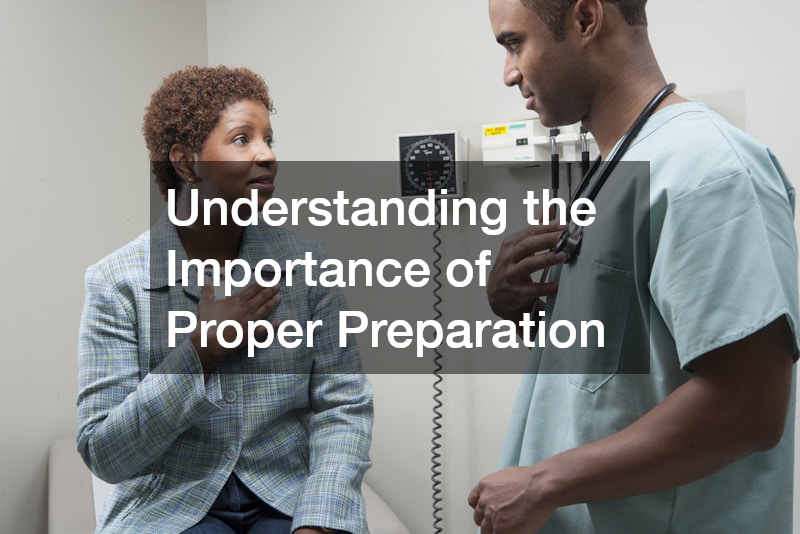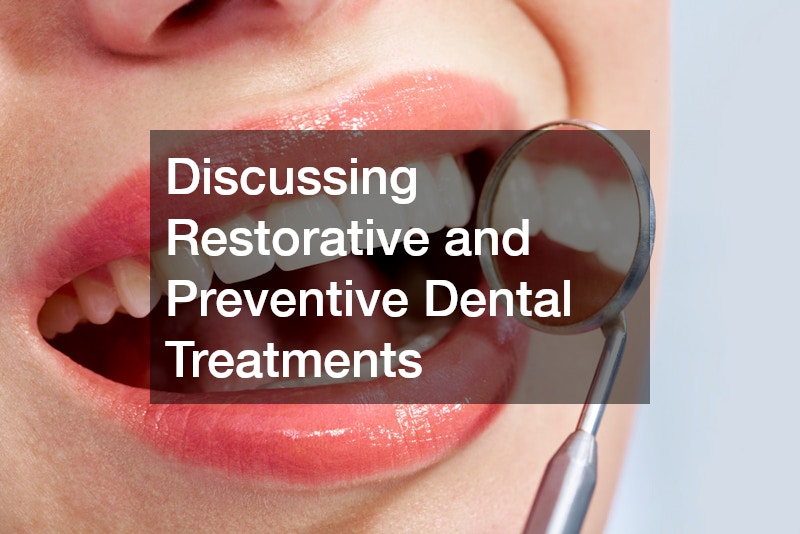Disclaimer: This website provides health information for educational purposes only and is not a substitute for professional medical advice, diagnosis, or treatment. Always seek the guidance of a qualified healthcare provider with any questions you may have.
Preparing for a doctor’s appointment may seem straightforward, but a little planning can make the experience far more productive and less stressful. Whether you’re seeing your physician for a routine check-up or addressing a specific concern, taking time to organize your thoughts, questions, and health information ensures a smoother visit. Effective preparation helps you communicate clearly, understand your treatment options, and make the most of the limited time you have during your appointment. By gathering medical records, noting symptoms, and prioritizing questions, you can leave your appointment feeling confident and informed.

- Understanding the Importance of Proper Preparation
- Addressing Emotional and Psychological Well-Being Before Your Visit

- Arranging Reliable Transportation to and From Your Appointment
- Managing Oral Health Concerns Before Meeting Your Physician

- Discussing Restorative and Preventive Dental Treatments
- Considering Cosmetic Procedures and How to Bring Them Up

- Knowing What to Expect When Discussing Facial Enhancements
- Learning About Regenerative and Advanced Treatment Options
- Exploring Skin Health and Professional Care Opportunities
- Preparing for a Career in the Medical Field for Future Visits
Understanding the Importance of Proper Preparation
One of the biggest mistakes patients make is showing up to an appointment without a clear plan. Doctors can provide better care when they have accurate and complete information about your symptoms, medications, and medical history. Preparing ahead of time also allows you to focus on your health concerns without feeling rushed or forgetting important details. Bringing a list of questions or health updates can lead to more meaningful discussions and more accurate diagnoses. Preparation ultimately helps build a stronger relationship between you and your healthcare provider.
In some cases, preparation may also involve knowing where to go in the event of an urgent situation. Visiting an er clinic may be necessary if you experience sudden or severe symptoms that require immediate attention. These clinics are designed to handle emergencies and ensure you receive prompt care when your primary doctor is unavailable. Understanding the difference between routine appointments and emergency visits allows you to respond appropriately to your health needs. When you take the time to plan, organize, and understand your healthcare options, you empower yourself to take an active role in managing your well-being.
Addressing Emotional and Psychological Well-Being Before Your Visit
Physical health is only part of the equation when it comes to preparing for a doctor’s appointment. Emotional and mental well-being can greatly influence how you perceive symptoms, follow treatment plans, and communicate with your healthcare provider. Anxiety, stress, or embarrassment may prevent you from discussing certain issues openly. Recognizing these feelings before your appointment helps you address them head-on and approach your visit with confidence and clarity. Preparing mentally also ensures that you remain calm and receptive during your consultation.
Speaking with a mental health counselor before your appointment can help you manage anxiety or emotional challenges that might affect your visit. Counselors can provide techniques for stress reduction, relaxation, and communication, helping you articulate your concerns more effectively. For patients who struggle with chronic illness, pain, or major lifestyle changes, counseling can also offer coping strategies and emotional support. Prioritizing mental health as part of your medical preparation promotes a more holistic approach to care, ensuring that both your body and mind are ready to work toward improved health outcomes.
Arranging Reliable Transportation to and From Your Appointment
Transportation is an often-overlooked part of preparing for a medical visit, but it can significantly impact your experience and peace of mind. Ensuring that you have a dependable way to get to and from your appointment allows you to focus fully on your health rather than logistics. For patients with mobility challenges, disabilities, or upcoming procedures that might affect their ability to drive, planning transportation in advance is essential. Even for routine appointments, eliminating the stress of travel helps create a smoother, more positive healthcare experience.
For those without access to a personal vehicle, arranging local medical transportation services can make attending appointments far more convenient and accessible. These services are designed to accommodate patients of all needs, offering specialized vehicles and trained drivers who understand how to provide safe, comfortable transport to medical facilities. They can also be scheduled for regular visits, ensuring consistent and reliable access to care. Taking the initiative to secure transportation not only guarantees punctuality but also helps you maintain regular health check-ups without unnecessary obstacles or stress.
Managing Oral Health Concerns Before Meeting Your Physician
Many patients don’t realize how closely oral health is linked to overall wellness. Conditions like gum disease, infections, or poorly fitting dental appliances can affect digestion, heart health, and even respiratory function. Addressing oral health issues before your doctor’s appointment ensures that you can provide a complete health overview during your visit. It also helps your physician understand potential connections between dental problems and other symptoms you may be experiencing. Keeping up with oral hygiene and dental care supports a healthier lifestyle and may even prevent complications in other parts of the body.
If you currently use local dentures, it’s important to make sure they fit properly and are well maintained before seeing your doctor. Ill-fitting dentures can cause discomfort, sores, or even speech difficulties, all of which may influence your overall health. Your physician may also ask about your dental devices if you’ve experienced any recent weight loss, changes in medication, or appetite issues. Checking in with your dentist before your medical visit ensures that your oral health aligns with your general well-being. By managing dental concerns early, you’ll help your healthcare providers gain a clearer, more accurate picture of your health.
Discussing Restorative and Preventive Dental Treatments
Dental health plays a major role in overall physical wellness and confidence. Preventive treatments like regular cleanings and restorative care can help you avoid pain, infections, and other complications that might affect your quality of life. Before your doctor’s appointment, consider whether you’ve experienced any oral discomfort, sensitivity, or cosmetic issues that could be worth mentioning. Sharing this information gives your doctor additional insight into your health and may prompt referrals or follow-up recommendations. Good oral health often reflects good systemic health, making it an important discussion point during check-ups.
If you’ve recently received or are considering a dental crown, it’s worth mentioning to your physician. Crowns protect weakened teeth, restore proper bite alignment, and can influence how you eat or maintain nutrition. In some cases, new dental materials or adhesives may interact with certain medications or allergies, so keeping your medical provider informed ensures safe and coordinated care. Your doctor might also consider dental factors when diagnosing issues such as jaw pain, headaches, or sinus discomfort. Maintaining open communication between your dentist and physician ensures comprehensive care that benefits your long-term health.
Considering Cosmetic Procedures and How to Bring Them Up
Discussing cosmetic goals with your physician can sometimes feel awkward, but it’s an important part of maintaining both physical and emotional well-being. Many cosmetic procedures are not just about appearance—they can also improve comfort, function, and confidence. Whether you’re thinking about correcting a physical concern or restoring your pre-pregnancy body, bringing up these topics with your doctor allows you to receive professional guidance. Your physician can provide insights about safe procedures, realistic outcomes, and qualified specialists who can help you reach your goals.
If you’ve been considering a tummy tuck, it’s best to talk openly with your doctor about your reasons and expectations before scheduling a consultation with a cosmetic specialist. A tummy tuck, or abdominoplasty, can help tighten loose skin and muscles, often after weight loss or pregnancy. However, your doctor can assess whether you’re healthy enough for surgery and provide pre- and post-operative care recommendations. They can also discuss any underlying medical conditions that might affect your eligibility or recovery. Having this conversation early ensures you make informed decisions that prioritize both health and aesthetics.
Knowing What to Expect When Discussing Facial Enhancements
When preparing for your appointment, it’s also important to consider whether you’d like to discuss facial or cosmetic enhancements. Your doctor can be a great resource for understanding the health implications, risks, and recovery times associated with these procedures. Bringing up these subjects during a medical visit ensures that your goals align with your overall health plan and that you receive honest, evidence-based advice. Open communication helps avoid complications and ensures that any aesthetic changes you pursue are safe and well-informed.
If you’re interested in consulting face lift surgeons, your doctor can help you prepare by reviewing your medical history and identifying any health concerns that might affect surgical outcomes. A facelift can rejuvenate facial features by tightening skin and underlying tissues, but it requires careful preoperative evaluation. Your physician might recommend lab work or lifestyle adjustments before surgery to promote healing and minimize risks. They can also refer you to reputable surgeons who specialize in facial procedures. By starting this conversation early, you’ll approach the process confidently and responsibly, ensuring your desired results support your overall well-being.
Learning About Regenerative and Advanced Treatment Options
As medicine continues to evolve, more patients are exploring regenerative and non-invasive treatment options for healing and rejuvenation. These therapies often involve using the body’s own cells to repair or enhance function, offering a modern alternative to traditional surgery. If you’re interested in exploring these options, discussing them with your doctor is an excellent first step. They can help you understand which treatments are legitimate, effective, and safe for your specific needs. Staying informed about advanced medical techniques empowers you to make thoughtful, science-based healthcare decisions.
For instance, prp injection training has become increasingly popular among medical professionals seeking to offer Platelet-Rich Plasma therapy, which promotes healing and tissue regeneration. While this training is typically designed for practitioners, patients benefit from understanding how PRP treatments work and what conditions they can address. If you’re considering PRP therapy for joint pain, skin rejuvenation, or hair restoration, your doctor can explain how it fits into your overall care plan. They may also connect you with specialists who are properly trained and certified to perform the procedure. Having an informed discussion about these innovative treatments ensures that your healthcare journey stays both safe and effective.
Exploring Skin Health and Professional Care Opportunities
Healthy skin is often a reflection of overall wellness, and maintaining it requires both proper daily care and professional guidance. Before visiting your doctor, take note of any skin concerns, such as persistent acne, dryness, or unusual moles, so you can discuss them during your appointment. Skin conditions are sometimes linked to other underlying health issues, including hormonal imbalances or allergies. Addressing them early can prevent complications and help you develop a more effective skincare routine. Prioritizing skin health not only boosts confidence but also plays a key role in disease prevention and long-term self-care.
If you’re interested in deepening your understanding of skincare, exploring esthetician training programs can offer valuable insights into how professional treatments improve skin health. Estheticians specialize in assessing skin conditions, providing facials, and recommending products or regimens suited to individual needs. Learning about these practices can also help you ask better questions during your medical appointments or when considering dermatological treatments. For patients who value preventive care and self-maintenance, gaining knowledge about professional skincare ensures you make choices that enhance your well-being both medically and cosmetically.
Preparing for a Career in the Medical Field for Future Visits
For some patients, medical appointments spark curiosity about careers in healthcare. Whether you’re inspired by your doctor’s expertise or want to help others in a clinical setting, understanding how medical training works can prepare you for a rewarding path. Exploring healthcare careers also gives you a deeper appreciation for the medical process and the professionals who provide your care. Before your appointment, you might consider asking your doctor about education requirements, certification options, or shadowing opportunities in your area of interest.
Those pursuing accredited ekg technician programs can take their first steps toward a hands-on role in healthcare. These programs teach students how to perform and interpret electrocardiograms, which are critical for monitoring heart health. Completing accredited training ensures you’re qualified to work in hospitals, clinics, or diagnostic labs. If you’re already passionate about medicine, your upcoming doctor’s visit could be a great opportunity to ask about the realities of working in a clinical environment. Learning from healthcare professionals firsthand helps you make informed decisions about your education and career direction.
Preparing for your doctor’s appointment goes beyond jotting down symptoms or scheduling a time—it’s about taking ownership of your health and ensuring your visit is as productive as possible. By organizing your questions, addressing emotional well-being, and considering both physical and lifestyle factors, you create a foundation for meaningful communication with your healthcare provider. Each aspect of preparation, from arranging transportation to reviewing dental or cosmetic concerns, contributes to a more thorough and effective experience.
Your appointment is not just a routine visit—it’s an opportunity to advocate for your own well-being and strengthen your relationship with your care team. By coming prepared and informed, you can confidently discuss your health goals, explore new treatment options, and ensure that your doctor fully understands your needs. Whether you’re managing chronic conditions, exploring preventive care, or planning future procedures, proper preparation transforms every visit into a step forward on your personal health journey.